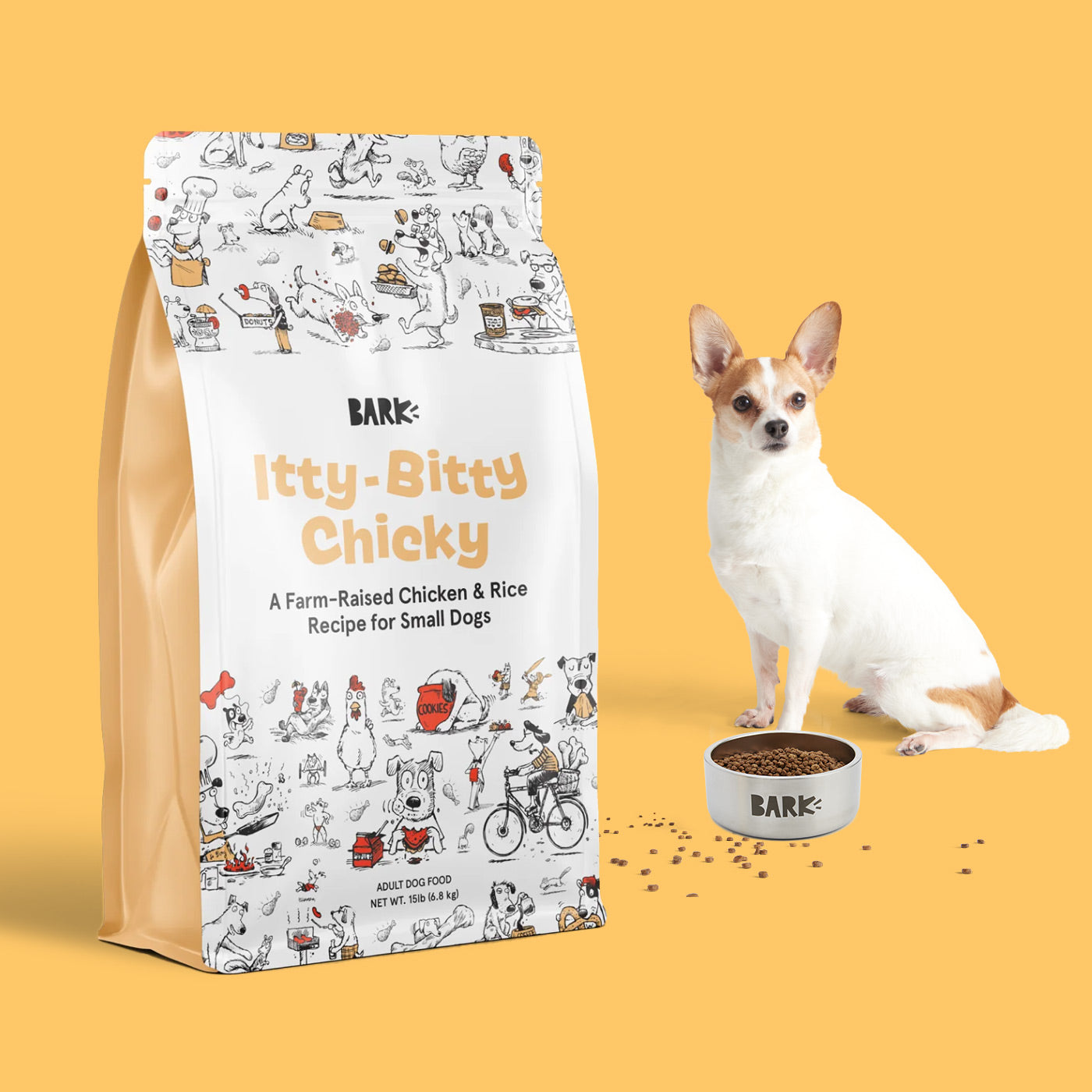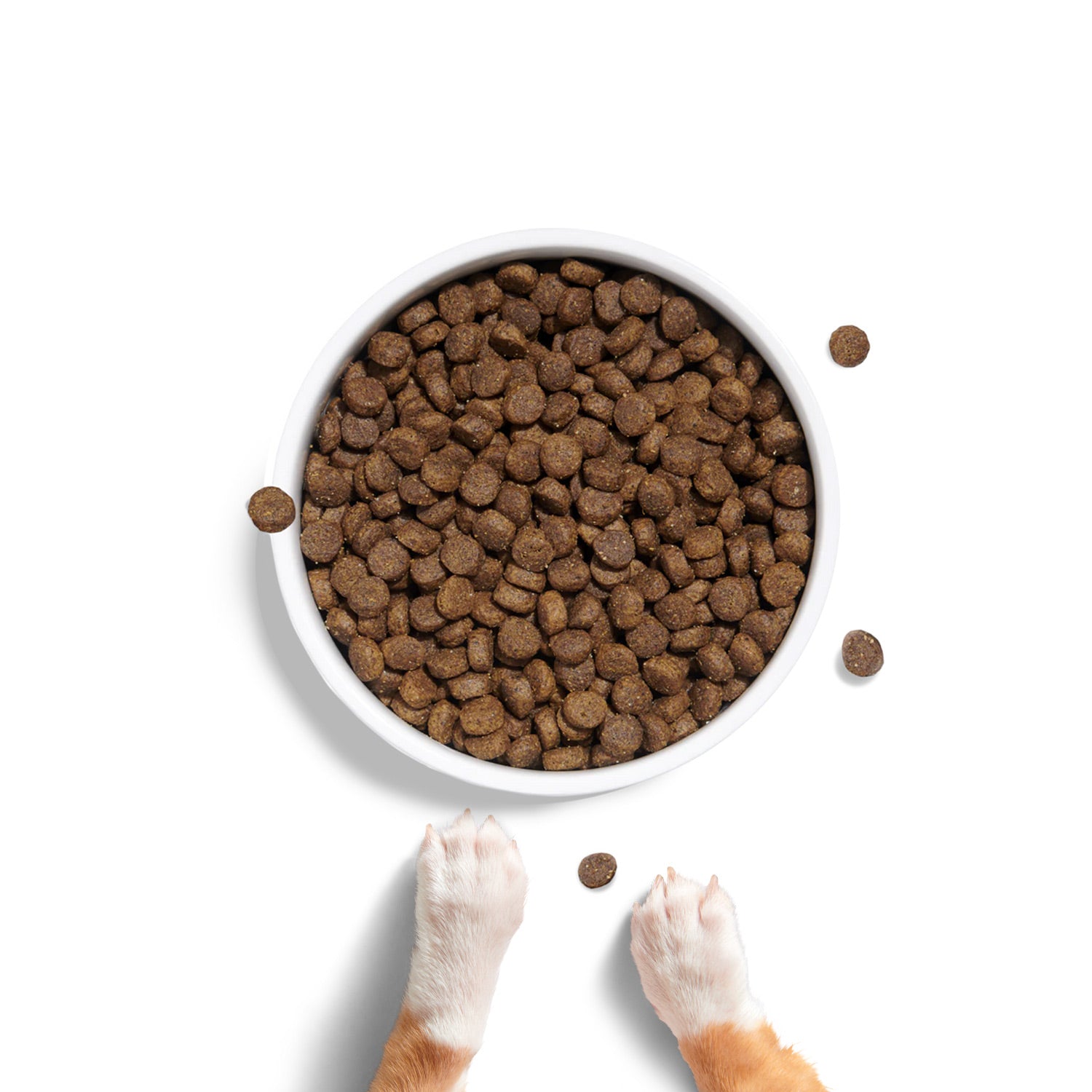
The Right Food, at the Right Price
A small-bite Chicken & Brown Rice blend formulated to support easy digestion, tiny hips & joints, and a healthy metabolism.
Did you know? We offer your dog the same price for their entire life when you choose Subscribe & Save.
4lb Bag for $25 - Shop NowRECOMMENDED FOR CHIHUAHUAS
Our farm-raised Chicken & Brown Rice recipe helps support Chihuahuas' unique needs, with ingredients like:
- Immune-boosting antioxidants
- Healthy fats to promote soft coats & hydrated skin
- Natural fiber blend with pre & probiotics
- Gently-cooked grains for sensitive skin & stomachs


What Chihuahua Parents Are Saying...
“Every time I reach out, the response is SO quick and the shipping is also insanely quick. We are forever customers! Best customer service ever.”
–Kristine & Penny
"We have been so pleased with the quality of product and customer service for seven years now. We’re really grateful to be able to get all of [Suzie's] toys, chews, treats, and food from one place we trust.”
–Kate & Suzie
“The food is very noticeable that it's top of the line ingredients and nutrients. I'm thrilled it has the live good bacteria included."
–Mary & Addi
"[Sweetness] usually just sniffs and picks at her food, but now that she is totally switched over to Itty Bitty Chicky with the savory Bada Bing Bada Beef topper, I frequently see her vigorously chowing down when it's time to eat."
–Linda & Sweetness
Chihuahua Food FAQs
How much food should I feed my Chihuahua?
Every dog has a different sweet spot due to age, genetics, lifestyle, digestibility & quality of their food, and any health issues. Taking these into consideration, there are formulas that we and your vet use to estimate where to start. After that, the ultimate answer comes from this question: Is your dog maintaining a healthy, lean body weight? If the answer is YES, you are feeding the perfect amount! If the answer is NO (they are getting a little too skinny or too chubby), then we need to make some gradual adjustments.
Keep in mind that for tiny dogs, gradual adjustments can mean very small changes (a couple pieces of kibble), so it's not a bad idea to get a kitchen scale that can measure in grams.
How many times should a Chihuahua eat per day?
For most adult dogs, splitting their daily recommended kibble amount into two meals is perfect. Some Chihuahuas prefer to have three meals per day (their stomachs are tiny)!
How do I transition my Chihuahua to BARK food?
To switch your Chihuahua's diet, we generally recommend transitioning over the course of one week, gradually phasing out the old food and introducing the new food. For the first two days, feed 25% new food and 75% old food. After that, move to 50% and 50% for two days, then 75% new food and 25% old food for two more days.
By this point, your dog should be ready to eat only their new food! If your pup tends to have a more sensitive digestive system, it's perfectly okay to make the transition even more gradual. Always monitor for any vomiting, diarrhea, or appetite changes that would indicate your dog is having trouble with the new food.
What health issues should I be aware of with my Chihuahua?
All dogs can get all dog diseases. That said, Chihuahuas are prone to becoming overweight or obese. Obesity can not only shorten their lifespan, it may also make other diseases worse. Other conditions they're predisposed to include periodontal disease, heart disease, orthopedic problems with their hips and knees, cataracts, corneal ulcers, bladder stones, cryptorchidism (failure of one or both testicles to descend—this can lead to cancer if not addressed), neurological issues (usually something they are born with), pregnancy issues, and tracheal collapse.
My Chihuahua has bad teeth, can they eat this food?
The short answer is: maybe.
Dental disease can be a big problem for your dog, especially if it's advanced. Sometimes, bad teeth need soft food, because hard food can be painful or impossible to eat. Tiny dogs like Chihuahuas are particularly prone to dental problems and disease because their mouths are too small for all their teeth, which can cause other complications over time.
Ideally, dental disease is addressed by your vet, who can remove any dead, dying, or broken teeth to eliminate discomfort and inflammation. However, if your vet hasn't or cannot address the issue, consider soft food.






